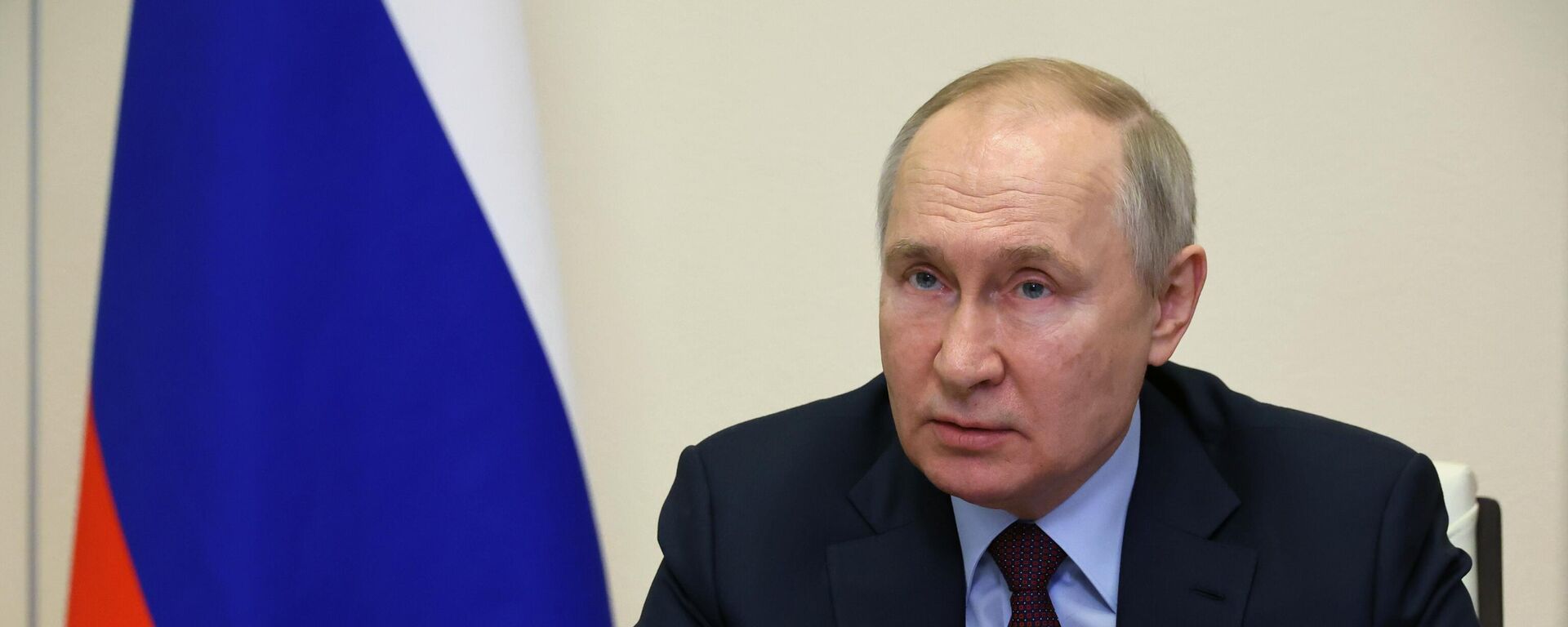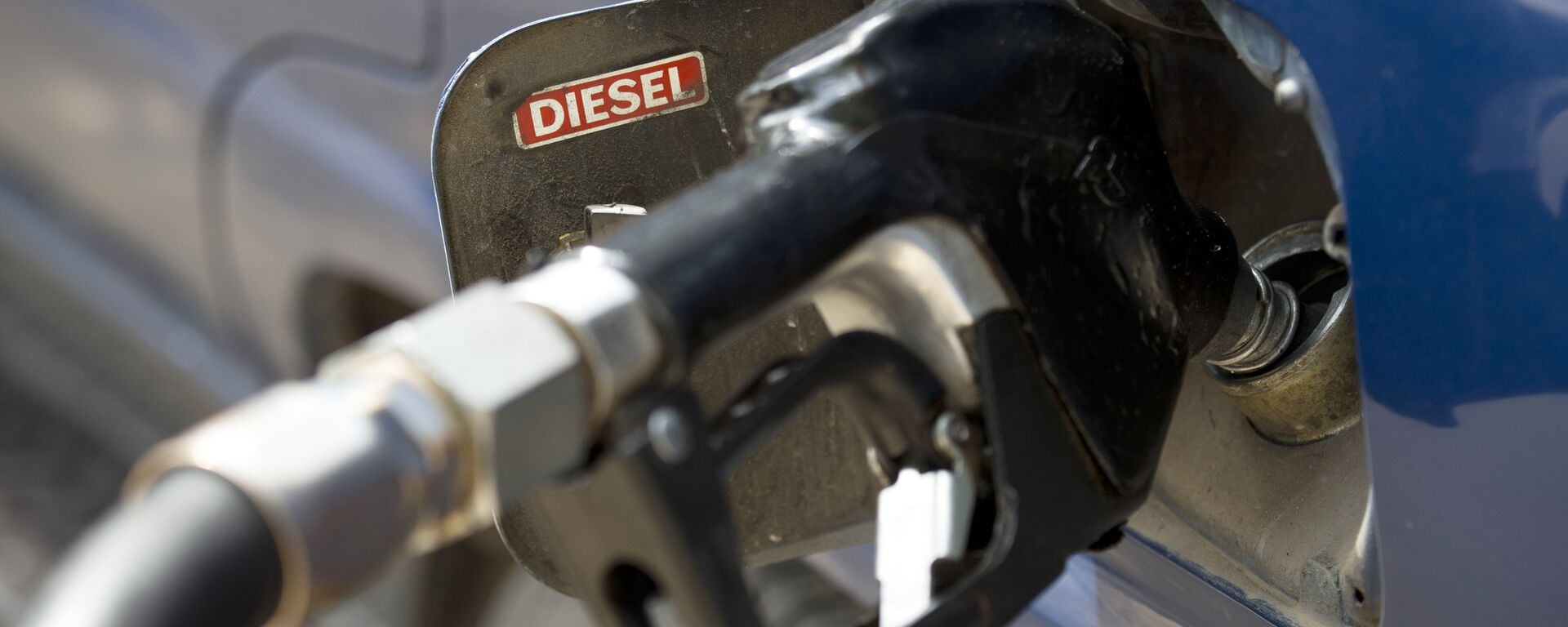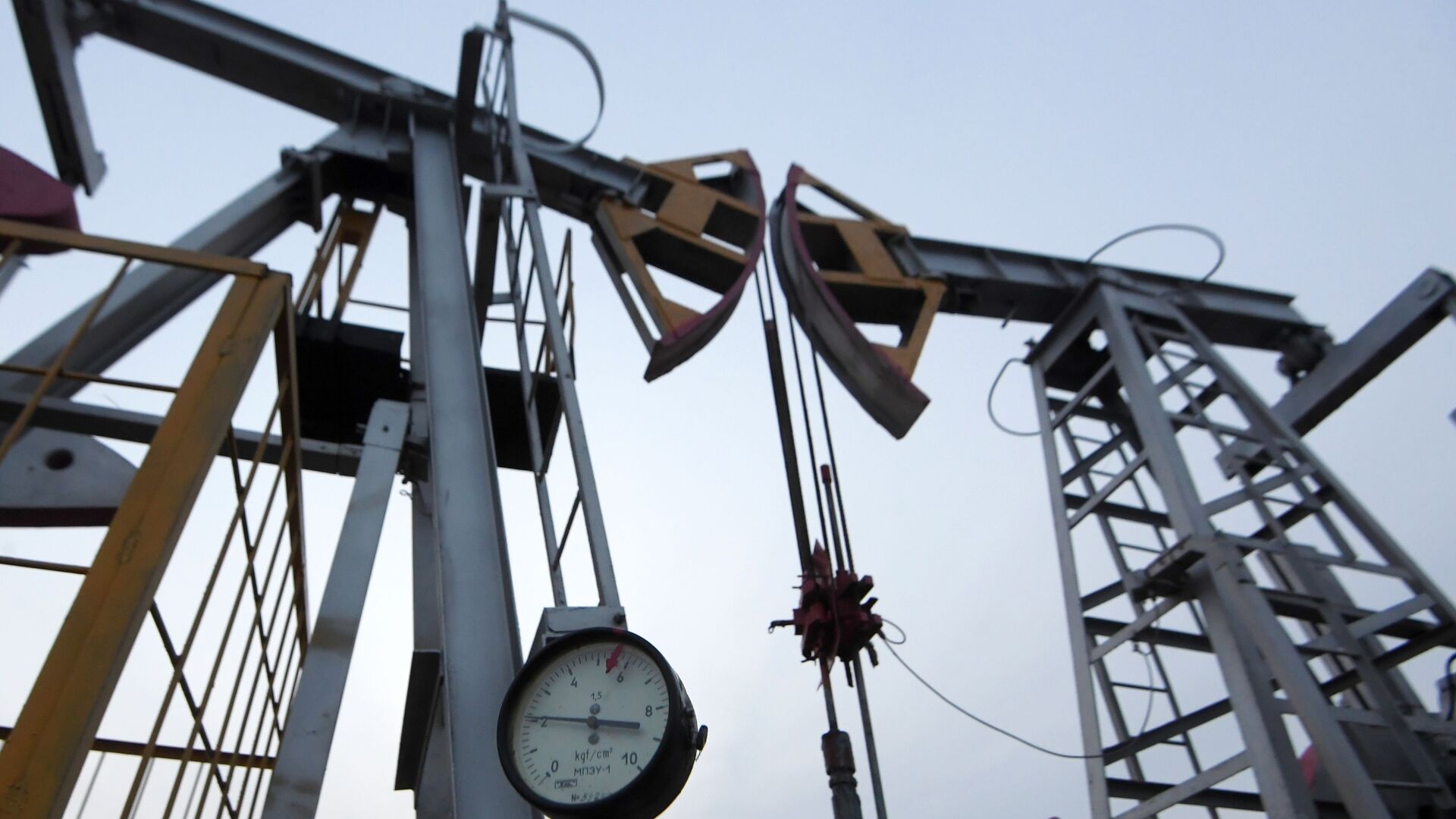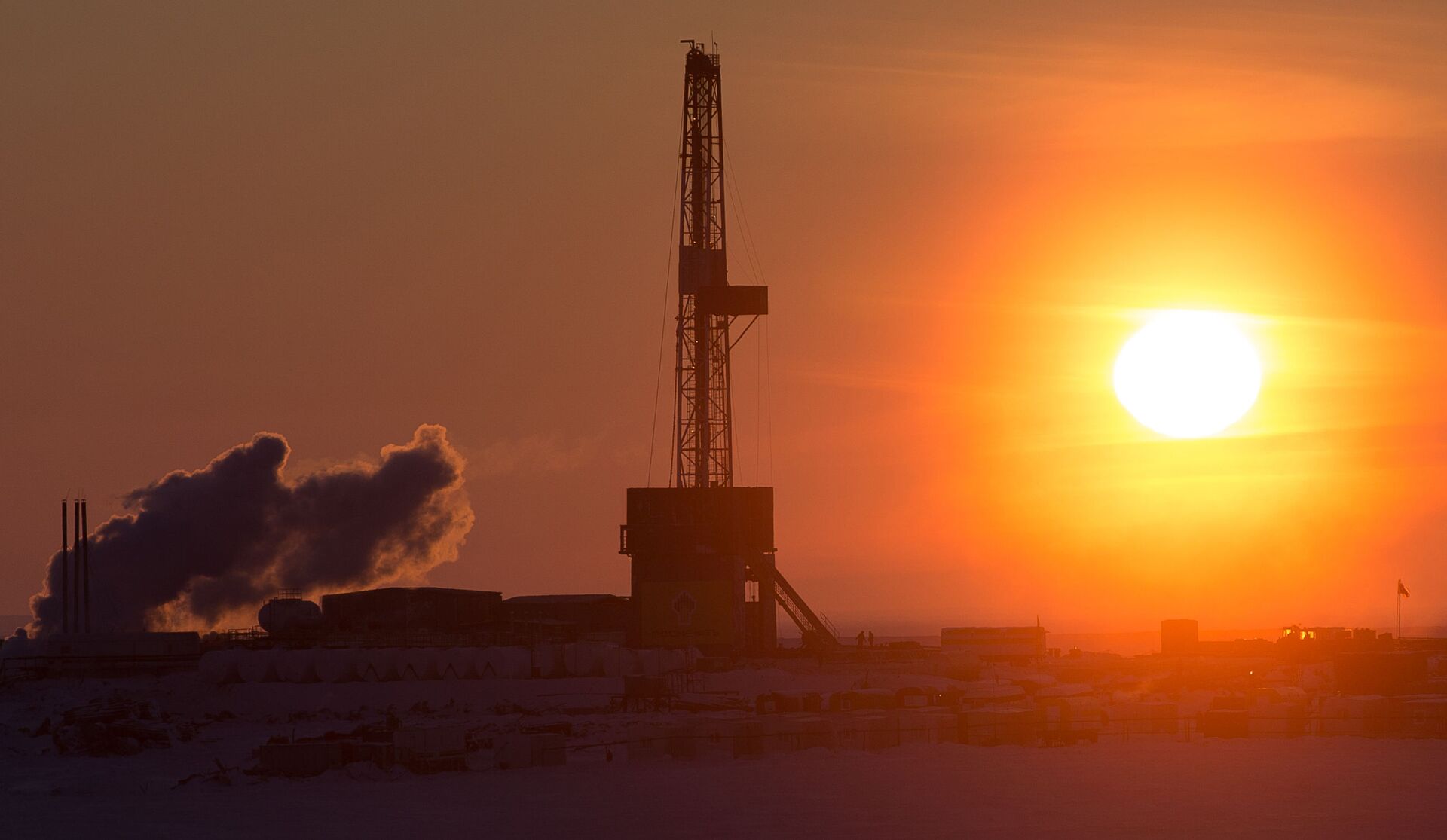https://sputnikglobe.com/20230214/russias-oil-drilling-in-2022-posted-multi-year-highs-despite-sanctions-data-shows-1107420442.html
Russia's Oil Drilling in 2022 Posted Multi-Year Highs Despite Sanctions, Data Shows
Russia's Oil Drilling in 2022 Posted Multi-Year Highs Despite Sanctions, Data Shows
Sputnik International
Russia's oil drilling in 2022 posted multi-year highs despite western sanctions, data shows.
2023-02-14T14:06+0000
2023-02-14T14:06+0000
2023-02-14T14:06+0000
russia
russia
oil
drilling
crude
sanctions
ukraine crisis
rosneft
gazprom
https://cdn1.img.sputnikglobe.com/img/107884/43/1078844386_0:92:3073:1820_1920x0_80_0_0_39a360e6bf20bec1b79ada5e7cdea746.jpg
While the so-called collective West prides itself on having ostensibly forced Moscow to buckle under the weight of “crippling” sanctions imposed over its special military operation in Ukraine, industry data analyzed by US media outlets begs to differ.Resilient to sanctions, Russian companies carried out the most extensive drilling at their oil fields in more than a decade in 2022. Oil rigs drilled a total depth of more than 28,000 kilometers last year, according to the cited data. Furthermore, the country launched more oil wells last year than in 2021, with the number soaring by nearly 7% to above 7,800.Moscow’s crude production rebounded in the second half of 2022 in defiance of newly-imposed restrictions. Sure, there was a low of 10.05 million barrels a day in April, but since then, oil production rebounded to around 10.9 million barrels daily at the end of last year, the report emphasized.More Drilling & More WellsThere are several factors explaining these positive developments, according to the American media report. While Western companies like BP Plc, Shell Plc, and Exxon Mobil Corp. abandoned multibillion-dollar investments in Russia under pressure to fall in line with the sanctions, with some leading international service providers following suit, this did not have the hoped-for effect.According to data from Vygon Consulting, those same international providers accounted for a mere 15% of Russia's total oil-service segment in 2021. Meanwhile, domestic crude producers such as Rosneft PJSC, Surgutneftegas PJSC, and Gazprom Group - those that comprise the bulk of the market - relied on in-house oil-service units. Furthermore, some oil-service providers, like SLB and Weatherford International Plc, did not entirely wrap up Russian operations.The report added that oil-service companies like Halliburton Co. and Baker Hughes Co. left Russia by selling off their operations to the local management, thus leaving both personnel and expertise available.As for getting hold of western high-tech equipment for for Russia’s domestic oil industry, “these problems are resolved thanks to imports through intermediaries in friendly states or by finding alternative suppliers in China,” said Mikhalchuk.Last week, Russia announced that it would voluntarily reduce crude oil production by 500,000 barrels per day in March, thus adhering to its earlier pledge to retaliate against the Western oil price cap.The EU joined the G7 industrialized countries and Australia earlier in February in setting a $100 price limit on Russian diesel, jet fuel and gasoline, and capping other crude and petroleum products at $45 per barrel. The price cap, however, does not apply to those oil products that are "substantially processed in a third country," or if they were produced in a third country by mixing Russian and foreign oil. The caps took effect two months after the Western allies set a $60 price ceiling on Russian crude - something Russia vowed to respond to by cutting production and halting all its oil exports to countries implementing the cap.
https://sputnikglobe.com/20230117/russias-oil-production-up-by-about-2-to-535mln-tonnes-despite-sanctions---putin-1106422979.html
https://sputnikglobe.com/20230208/price-cap-on-russian-diesel-to-raise-costs-for-europe-disrupt-logistics-energy-expert-1107077628.html
russia
Sputnik International
feedback@sputniknews.com
+74956456601
MIA „Rossiya Segodnya“
2023
News
en_EN
Sputnik International
feedback@sputniknews.com
+74956456601
MIA „Rossiya Segodnya“
Sputnik International
feedback@sputniknews.com
+74956456601
MIA „Rossiya Segodnya“
russia's oil drilling in 2022, multi-year highs, despite western sanctions, rosneft pjsc, surgutneftegas pjsc, gazprom group
russia's oil drilling in 2022, multi-year highs, despite western sanctions, rosneft pjsc, surgutneftegas pjsc, gazprom group
Russia's Oil Drilling in 2022 Posted Multi-Year Highs Despite Sanctions, Data Shows
Moscow was hit by several rounds of unprecedented Western sanctions shortly after it launched its special military operation in Ukraine last February, as the West sought ways to limit Russia's income from oil and gas exports, hoping to "cripple" its economy. In effect, the backfiring restrictions came back to haunt Western economies.
While the so-called collective West prides itself on having ostensibly forced Moscow to buckle under the weight of “crippling”
sanctions imposed over its special military operation in Ukraine, industry data analyzed by US media outlets begs to differ.
Resilient to sanctions, Russian companies carried out the most extensive drilling at their oil fields in more than a decade in 2022. Oil rigs drilled a total depth of more than 28,000 kilometers last year, according to the cited data. Furthermore, the country launched more oil wells last year than in 2021, with the number soaring by nearly 7% to above 7,800.
Moscow’s crude production rebounded in the second half of 2022 in defiance of
newly-imposed restrictions. Sure, there was a low of 10.05 million barrels a day in April, but since then, oil production rebounded to around 10.9 million barrels daily at the end of last year, the report emphasized.
More Drilling & More Wells
There are several factors explaining these positive developments, according to the American media report.
While Western companies like BP Plc, Shell Plc, and Exxon Mobil Corp. abandoned multibillion-dollar investments in Russia under pressure to fall in line with the sanctions, with some leading international service providers following suit, this did not have the hoped-for effect.
According to data from
Vygon Consulting, those same international providers accounted for a mere 15% of Russia's total oil-service segment in 2021. Meanwhile, domestic crude producers such as Rosneft PJSC, Surgutneftegas PJSC, and Gazprom Group - those that comprise the bulk of the market - relied on in-house oil-service units. Furthermore, some oil-service providers, like SLB and Weatherford International Plc, did not entirely wrap up Russian operations.
The report added that oil-service companies like Halliburton Co. and Baker Hughes Co. left Russia by selling off their operations to the local management, thus leaving both personnel and expertise available.
“The industry largely continues working just like before. Russia has been able to retain most oil-service competencies, assets and technologies,” Vitaly Mikhalchuk, head of the research center at Business Solutions and Technologies (BST), formerly a Russian unit of consultant Deloitte & Touche LLP, was cited as saying.
As for getting hold of western high-tech equipment for for Russia’s domestic oil industry, “these problems are resolved thanks to imports through intermediaries in friendly states or by finding alternative suppliers in China,” said Mikhalchuk.

17 January 2023, 11:47 GMT
Last week, Russia announced that it would voluntarily
reduce crude oil production by 500,000 barrels per day in March, thus adhering to its earlier pledge to retaliate against the Western oil price cap.
The EU joined the G7 industrialized countries and Australia earlier in February in setting a $100 price limit on Russian diesel, jet fuel and gasoline, and capping other crude and petroleum products at $45 per barrel. The
price cap, however, does not apply to those oil products that are "substantially processed in a third country," or if they were produced in a third country by mixing Russian and foreign oil. The caps took effect two months after the Western allies set a $60
price ceiling on Russian crude - something Russia vowed to respond to by cutting production and halting all its oil exports to countries implementing the cap.

8 February 2023, 12:00 GMT







